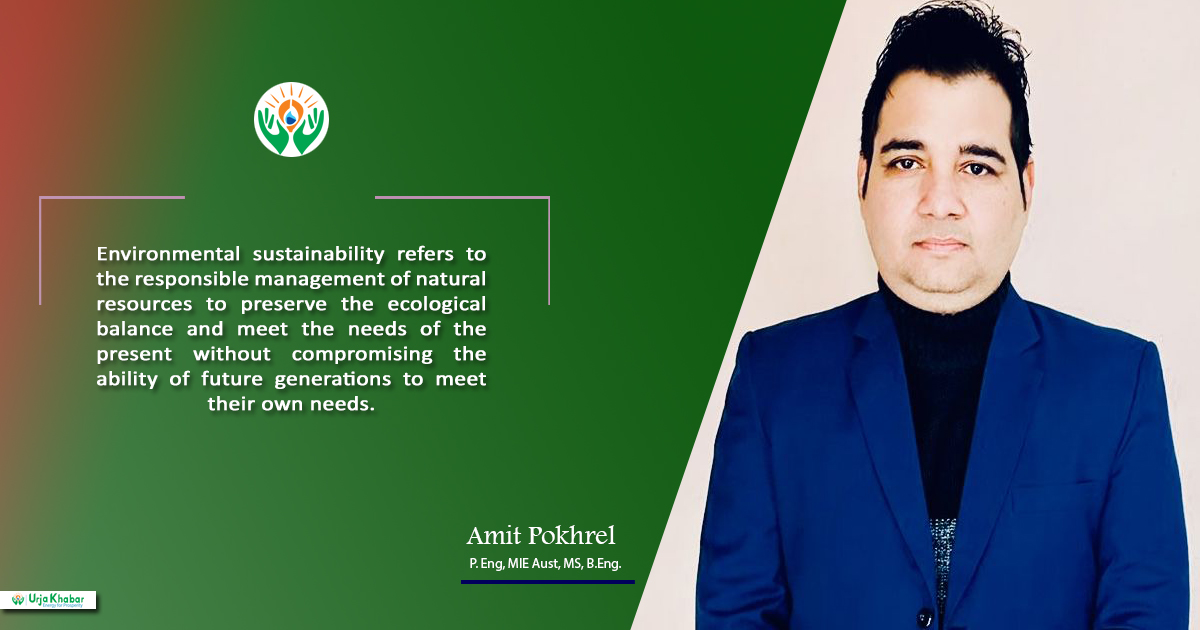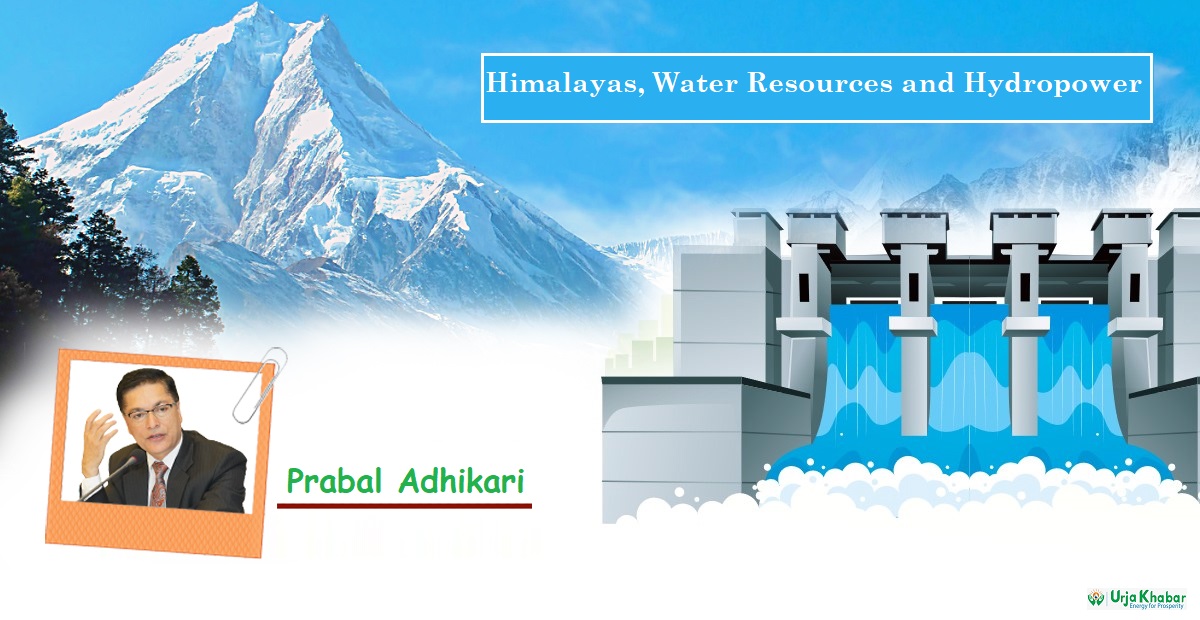Energy Update
Environmental Sustainability: A Key Pillar for Good Governance in Nepal

In recent years, the concept of environmental sustainability has gained significant importance on the global stage. It has become clear that fostering a sustainable environment is a prerequisite for achieving overall development and ensuring a better quality of life for future generations. In the context of Nepal, a country blessed with abundant natural resources, the integration of environmental sustainability into the fabric of good governance is of utmost importance. This article delves into the significance of environmental sustainability in promoting good governance in Nepal.
Before delving into the importance of environmental sustainability, it is crucial to have a clear understanding of the term itself. Environmental sustainability refers to the responsible management of natural resources to preserve the ecological balance and meet the needs of the present without compromising the ability of future generations to meet their own needs. It involves adopting practices that reduce environmental degradation, promote conservation, and foster sustainable development.

Environmental Sustainability and Good Governance: The Vital Link
1. Ensuring accountability and transparency

Good governance entails accountability and transparency in decision-making processes. By integrating environmental sustainability into governance practices, Nepal can ensure that responsible decisions are made regarding natural resource management. This allows for increased transparency in resource allocation, reducing the risk of corruption and mismanagement.
2. Promoting participatory decision-making
Inclusive decision-making processes are essential for good governance. By involving local communities, civil society organizations, and other stakeholders in environmental sustainability initiatives, Nepal can foster a sense of ownership and empower individuals to contribute to the preservation and sustainable use of natural resources. This participatory approach helps ensure that policies and regulations align with the needs and aspirations of the people.
3. Strengthening the rule of law
Environmental sustainability requires the enactment and enforcement of robust laws and regulations. Good governance ensures that these laws are effectively implemented and enforced, preventing illegal activities such as deforestation, wildlife trafficking, and the unauthorized extraction of natural resources. By upholding the rule of law, Nepal can protect its environment and promote sustainable practices.
4. Fostering economic development and poverty alleviation
Environmental sustainability and economic development are not contradictory goals. By adopting sustainable practices, Nepal can simultaneously promote economic growth and poverty alleviation while safeguarding the environment. Investments in renewable energy, waste management, and sustainable agriculture create employment opportunities, boost incomes, and contribute to the overall well-being of the population.
5. Preserving cultural heritage
Nepal is known for its rich cultural heritage and biodiversity, which are closely interconnected. Environmental sustainability plays a crucial role in preserving Nepal's cultural treasures. By protecting natural ecosystems and biodiversity, the country can maintain its cultural heritage, which is a source of pride and identity for its people.
Challenges and the Way Forward
Despite the evident importance of environmental sustainability in good governance, Nepal faces several challenges in its pursuit. These include:
Limited awareness and understanding of the long-term benefits of environmental sustainability among policymakers and the general public.
Inadequate institutional capacity and resources for effective implementation and enforcement of environmental laws.
Rapid urbanization and population growth, leading to increased pressure on natural resources.
Climate change and its adverse impact on vulnerable communities.
To overcome these challenges and make environmental sustainability an integral part of good governance, Nepal needs to take the following actions:
Raise awareness and educate stakeholders about the importance of environmental sustainability through public campaigns, educational programs, and targeted training sessions for policymakers.
Strengthen institutional capacity by providing adequate resources, training, and technical support to government agencies responsible for environmental governance.
Foster international cooperation and collaboration to tackle transboundary environmental issues and learn from global best practices.
Facilitate the participation of local communities and civil society organizations in decision-making processes to ensure inclusivity and sustainability.
Integrate environmental sustainability principles into development plans, policies, and regulations, considering the cultural, social, and economic aspects of Nepal's diverse communities.
In conclusion, environmental sustainability is not just an ethical responsibility but also a crucial component of good governance in Nepal. By acknowledging its significance, Nepal can lay the foundation for a sustainable future, ensuring that its natural resources are managed responsibly and equitably for the benefit of all. Embracing environmental sustainability will not only protect Nepal's unique biodiversity and cultural heritage but also foster economic growth, poverty alleviation, and social harmony. Let us unite and prioritize environmental sustainability to secure a prosperous and resilient future for generations to come.
The Author of this article works as a Senior Contract & Commercial Specialist in the Energy Business verticals of Golyan Group, Kathmandu, Nepal
Conversation
- Info. Dept. Reg. No. : 254/073/74
- Telephone : +977-1-5321303
- Email : [email protected]














